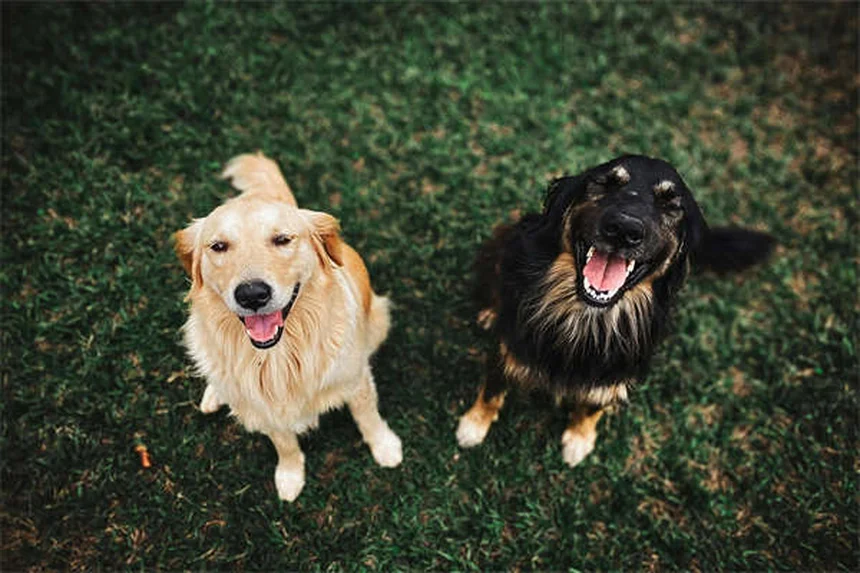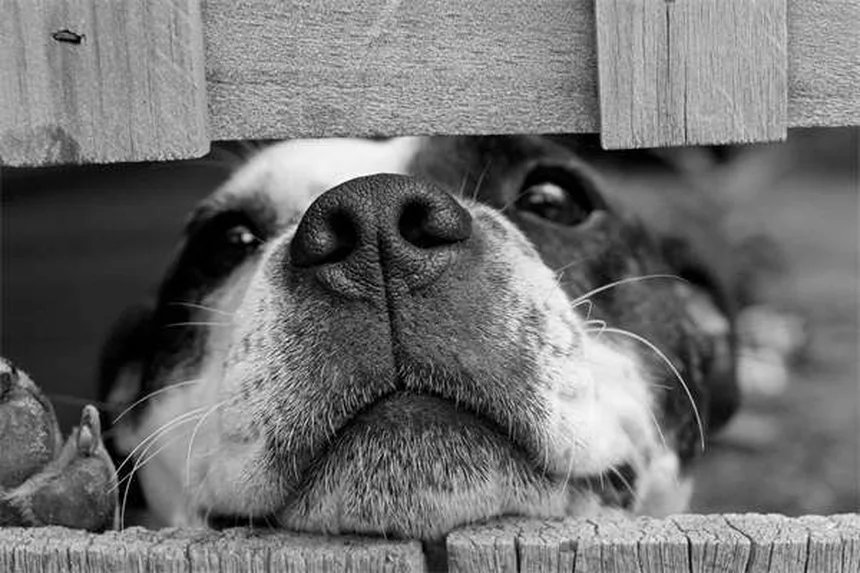Advertisement
Are teacup puppies healthy? The hard truth is no - these tiny dogs come with big health risks. As someone who's worked with dogs for years, I've seen firsthand how teacup breeding creates puppies prone to life-threatening conditions like hypoglycemia, hydrocephalus, and fragile bones. While they might look adorable in Instagram photos, the reality is that teacup dogs often suffer from serious health problems their entire lives.Here's what you need to understand: ethical breeders focus on producing healthy dogs that meet breed standards, while teacup breeders prioritize size over everything else. I've talked to veterinarians who say these micro dogs frequently end up in emergency rooms for issues that wouldn't affect normal-sized dogs. If you're considering a teacup puppy, please think twice - there are much healthier small breed alternatives that won't break your heart (or your bank account) with constant vet visits.
E.g. :Lorazepam for Dogs: Safe Usage Guide & Side Effects
- 1、What Exactly Are Teacup Dogs?
- 2、The Dark Side of Teacup Breeding
- 3、Teacup Health Hazards You Need to Know
- 4、Daily Dangers for Teacup Dogs
- 5、Better Alternatives to Teacup Dogs
- 6、The Bottom Line on Teacup Dogs
- 7、The Emotional Impact of Teacup Dog Ownership
- 8、The Ethical Debate Around Teacup Breeding
- 9、Teacup Dogs in Popular Culture
- 10、Practical Considerations for Prospective Owners
- 11、The Future of Teacup Breeding
- 12、FAQs
What Exactly Are Teacup Dogs?
The Tiny Truth About These Pocket-Sized Pups
Let me tell you about teacup dogs - they're like the espresso shots of the canine world! These micro pups weigh significantly less than their breed standards, often tipping the scales at under 4 pounds. You might hear them called pocket dogs, micro dogs, or even purse puppies (because they literally fit in your handbag).
Here's the scoop: While regular small breeds like Yorkies and Chihuahuas already come in petite packages, teacup breeders take this to extremes. They selectively breed the tiniest dogs to create even smaller versions, sometimes mixing breeds to create "designer" teacup hybrids like Pomchis or Maltipoos. But is this really good for the dogs? Let's look at some numbers:
| Breed | Standard Weight | Teacup Version |
|---|---|---|
| Yorkshire Terrier | 4-7 lbs | 2-3 lbs |
| Chihuahua | 3-6 lbs | 1-2 lbs |
| Pomeranian | 3-7 lbs | 1-3 lbs |
The Dark Side of Teacup Breeding
Why Size Matters (And Not in a Good Way)
Picture this: ethical breeders focus on health, temperament, and breed standards. Teacup breeders? They've got tunnel vision for one thing only - making dogs as small as possible. It's like they're playing Jenga with dog genetics, removing all the healthy pieces until the whole structure becomes unstable.
Here's what happens behind the scenes: They breed the runts of litters together repeatedly, ignoring potential health consequences. Imagine taking the smallest kid in every class and only letting them have babies together - generation after generation. That's essentially what's happening with teacup breeding programs.
 Photos provided by pixabay
Photos provided by pixabay
The Profit Motive Behind Tiny Paws
Let's talk dollars and sense (see what I did there?). These breeders charge premium prices for these tiny dogs - sometimes thousands of dollars. But what are you really paying for? A lifetime of potential vet bills and heartache. It's like buying a sports car that looks great but has no engine - cute to look at, but it won't get you far without constant repairs.
Teacup Health Hazards You Need to Know
Blood Sugar Blues (Hypoglycemia)
Imagine needing to eat every two hours just to stay alive - that's the reality for many teacup puppies. Their tiny bodies can't regulate blood sugar properly, leading to dangerous crashes that can cause seizures or even death. We're talking 2 AM feedings, folks - not exactly the low-maintenance pet experience most people want.
Brain Drain (Hydrocephalus)
That adorable oversized head some teacups have? It might actually be filled with fluid putting pressure on their brains. This condition can lead to blindness, seizures, and behavioral issues. Surgery might help, but it's expensive and doesn't always solve the problem completely.
 Photos provided by pixabay
Photos provided by pixabay
The Profit Motive Behind Tiny Paws
Ever tried fitting ten pounds of potatoes in a five-pound bag? That's what happens with teacup dog teeth. Their tiny jaws can't properly accommodate all those teeth, leading to crowding, decay, and painful dental disease. Regular cleanings (under anesthesia, which is riskier for small dogs) become a necessity, not a luxury.
Daily Dangers for Teacup Dogs
They're Always Cold!
Did you know teacup dogs can get hypothermia in regular room temperatures? Their tiny bodies lose heat faster than they can produce it. You'll need to invest in a whole wardrobe of sweaters and keep your home warmer than you might like. Forget about winter walks without serious bundling up!
Medication Mayhem
Here's something most people don't think about: most medications are dosed for dogs over 5 pounds. Your 2-pound teacup? You'll need special compounded medications that cost significantly more. Even flea and tick preventatives become a challenge to dose properly.
 Photos provided by pixabay
Photos provided by pixabay
The Profit Motive Behind Tiny Paws
Remember how careful you were with your grandma's fine china? That's how you'll need to treat a teacup dog. A simple jump off the couch can mean broken bones. Stepping on them accidentally (which happens more than you'd think) can be fatal. Even playing with larger dogs becomes risky business.
Better Alternatives to Teacup Dogs
Small But Mighty Options
Why not consider a healthy small breed that meets standard size requirements? You'll get all the lap dog benefits without the health risks. Here are some great alternatives:
- Miniature Schnauzers (12-20 lbs)
- Boston Terriers (12-25 lbs)
- Cavalier King Charles Spaniels (13-18 lbs)
- Dachshunds (16-32 lbs)
Adoption is Always an Option
Did you know many shelters have small dogs needing homes? You might find the perfect petite companion without supporting questionable breeding practices. Plus, adopted dogs often come already spayed/neutered and vaccinated - saving you money upfront!
The Bottom Line on Teacup Dogs
Is Cute Worth the Consequences?
Let me ask you this: would you buy a car knowing it would need constant, expensive repairs? Probably not. Yet that's exactly what many people do when they purchase teacup dogs. The initial "aww" factor quickly fades when faced with ongoing health issues and vet bills.
Making an Informed Decision
If you're absolutely set on a tiny dog, consider working with an ethical breeder who occasionally has smaller-than-standard puppies in their litters. These breeders will be upfront about health testing and won't charge exorbitant "teacup" prices. Just remember - no breeding these small pups yourself!
Final thought: When choosing a dog, focus on health and temperament first, size second. A happy, healthy dog of any size will bring you more joy than a fragile fashion accessory with four legs.
The Emotional Impact of Teacup Dog Ownership
When Cuteness Comes With Stress
You know that feeling when your phone battery hits 5%? That's the constant anxiety level many teacup dog owners experience. These fragile pups require helicopter parenting on steroids. I've seen owners develop actual insomnia from worrying about their tiny companion's health.
Here's the reality check: While all pets need care, teacup dogs demand extreme vigilance. Their delicate systems mean ordinary situations become emergencies. That slight limp after playing? Could be a fracture. Skipping one meal? Potential hypoglycemic crisis. It's like caring for a newborn - but one that never grows out of the vulnerable stage.
The Financial Toll of Tiny Companions
Let's crunch some numbers beyond the initial purchase price. The average teacup dog owner spends 3-5 times more on veterinary care compared to standard-sized dogs of the same breed. Why? Because everything from anesthesia risks to specialized medications drives up costs.
Consider this comparison of annual expenses:
| Expense Category | Standard Chihuahua | Teacup Chihuahua |
|---|---|---|
| Routine Vet Visits | $200-$400 | $600-$1000 |
| Dental Care | $300-$500 | $800-$1200 |
| Emergency Visits | $0-$500 | $1000-$3000 |
The Ethical Debate Around Teacup Breeding
Where Do We Draw the Line?
Have you ever wondered why there aren't teacup versions of large breeds? Because it would be obviously cruel to shrink a Great Dane to purse-size. Yet somehow, taking already-small breeds and making them even tinier has become socially acceptable. Makes you think, doesn't it?
The answer lies in consumer demand driving unethical practices. When people pay top dollar for extreme miniaturization, breeders have financial incentive to prioritize size over welfare. It's a vicious cycle that won't stop until buyers become more educated.
The Puppy Mill Connection
Here's an uncomfortable truth: many "teacup" puppies come from puppy mills disguised as boutique breeders. These operations often keep breeding dogs in horrific conditions while churning out litter after litter of fragile puppies. The moms? They're usually discarded when they can no longer produce.
Pro tip: If a breeder has multiple "teacup" litters available year-round, that's a major red flag. Ethical breeders rarely specialize in these extreme sizes and typically have waiting lists.
Teacup Dogs in Popular Culture
Celebrity Influence and Social Media Hype
Remember when Paris Hilton made tiny dogs a fashion accessory? That trend never really died - it just moved to Instagram. Influencers flaunt their teacup pups in designer carriers, creating unrealistic expectations about dog ownership.
The problem? These curated posts never show the 3 AM vet runs or the thousands spent on medical care. It's like comparing your messy Monday morning to someone's perfect vacation photo - you're only seeing the highlight reel.
The "Forever Puppy" Fantasy
Let's bust this myth right now: no dog stays puppy-sized forever, not even teacups. They still grow, just to an extremely small adult size. Many buyers don't realize these dogs still need training, socialization, and all the responsibilities that come with any pet.
And here's the kicker - that "adorable" puppy behavior? In an undersized dog, it often stems from neurological issues or chronic pain rather than genuine puppy enthusiasm.
Practical Considerations for Prospective Owners
Lifestyle Compatibility Check
Before falling for those big eyes, ask yourself: Is your home really teacup-proof? These dogs can slip through balcony railings, get stuck behind furniture, and even drown in toilet bowls. You'll need to puppy-proof like never before.
Also consider your daily routine. Frequent travelers? Teacups often can't handle the stress of boarding. Have young kids? These fragile dogs and curious children don't mix well. Work long hours? Hypoglycemia risks make that impossible.
The Hidden Time Commitment
Think you're saving time with a smaller dog? Think again. Teacups require more frequent potty breaks (their bladders are tiny), more grooming (their coats are often finer), and more supervision than larger dogs. It's like having a perpetual toddler that never grows up.
And let's talk about exercise - while they don't need long walks, they do need careful temperature-controlled playtime. Too much activity can exhaust them; too little leads to obesity (which is extra dangerous on their tiny frames).
The Future of Teacup Breeding
Veterinary Community Concerns
Many vets refuse to support teacup breeding programs, and for good reason. These professionals see firsthand the suffering caused by extreme miniaturization. Some veterinary associations are now pushing for breeding standards that prohibit intentionally producing dogs below healthy weight ranges.
The movement is gaining traction, with several states considering legislation to regulate "teacup" labeling in pet sales. It's about time, don't you think?
Consumer Education as the Solution
Here's the hopeful part: as more people learn about the health risks, demand for these dogs decreases. Ethical breeders are starting to speak out against the teacup trend, and adoption campaigns highlight the benefits of healthy small breeds.
The power truly lies with buyers. Every time someone chooses a responsibly bred dog over a teacup, it sends a message to the industry. Together, we can shift the focus from "how small" to "how healthy."
E.g. :Teacup Dogs and Puppies: What to Know | PetMD
FAQs
Q: What exactly makes a dog a "teacup" breed?
A: Teacup dogs are bred to be significantly smaller than their breed's standard size - we're talking under 4 pounds as adults! While regular small breeds like Chihuahuas and Yorkies already come in petite packages (typically 4-7 pounds), teacup breeders take this to extremes by selectively breeding the smallest dogs generation after generation. The problem? This intense focus on size comes at the expense of the dog's health. These breeders often ignore genetic testing and health clearances that responsible breeders prioritize. What you're left with is a dog that might fit in your purse, but will likely spend more time at the vet than in your lap.
Q: Why are teacup puppies so prone to health problems?
A: Teacup puppies face health issues because their tiny bodies simply weren't meant to function at that size. Their organs struggle to work properly - for example, their livers can't process toxins effectively, leading to dangerous conditions like liver shunts. Their blood sugar regulation is terrible (hypoglycemia), meaning they need to eat every 2-3 hours or risk seizures. Their bones are fragile, their teeth overcrowded, and their immune systems weak. It's not just one health risk - it's a cascade of problems that stem from prioritizing appearance over biological function. As a vet tech friend told me, "These dogs are walking medical emergencies waiting to happen."
Q: Are there any ethical ways to get a very small dog?
A: If you absolutely want a petite pup, your best bet is working with a responsible breeder who occasionally has smaller-than-standard puppies in their litters. These breeders will be upfront about health testing and won't charge ridiculous "teacup" prices. Another great option? Adopting a small adult dog from a shelter - many have wonderful small breeds that just happen to be on the smaller end of their breed's standard. Remember, a dog that meets its breed's size requirements will generally be healthier and live longer than an artificially miniaturized version.
Q: How much more expensive is it to care for a teacup dog?
A: Teacup dogs cost significantly more over their lifetime compared to standard-sized dogs. Beyond the initial high purchase price ($1,000-$5,000+), you're looking at: special compounded medications (since normal doses are for 5+ pound dogs), frequent vet visits (expect $200-$500 per visit), potential surgeries (hydrocephalus treatment can cost $5,000+), and specialized care items. One client told me she spent over $15,000 in the first two years on her teacup Yorkie's medical bills. That's not even counting the emotional cost of seeing your pet suffer through preventable health issues.
Q: What are some healthier alternatives to teacup dogs?
A: There are plenty of wonderful small breeds that offer the lap dog experience without the health risks! Consider breeds like Miniature Schnauzers (12-20 lbs), Boston Terriers (12-25 lbs), or Cavalier King Charles Spaniels (13-18 lbs). These dogs are small enough for apartment living but robust enough to enjoy an active life. If you want something even smaller, look for adult Chihuahuas or Pomeranians that meet breed standards - they're tiny but not dangerously so. Remember, a healthy dog means more quality time together and fewer stressful vet visits.




